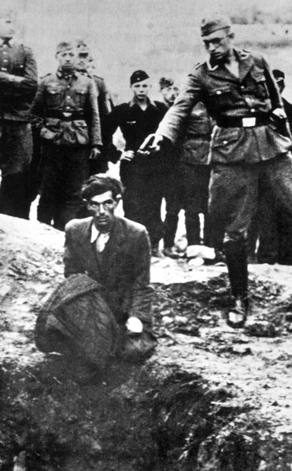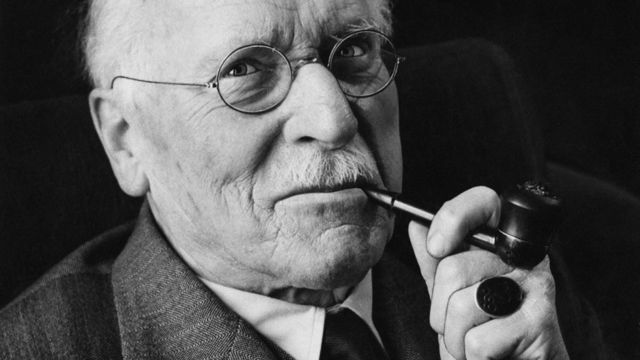The failure of Utopian Europe
The great advantage of seeing things from afar is that the whole can be appreciated without the observer being distracted with irrelevant or trivial details. A tree, for example, observed at a distance can be seen without it various imperfections that can cloud an understanding of its overall essence as a tree per se.
When we look at the history of Europe at a distance, we are struck by how this continent evolved from being the economic, cultural and political center of the world, to merely a sub region in many fields of human activity, and one in decline. The contrast between how European civilization entered and exited the nineteenth century, with how it entered and exited the twentieth, cannot be greater.

The French Revolution: a path towards Utopia.
At the beginning of the nineteenth century, the nations of Europe were bleeding after the Napoleonic wars, severely weakened by the carnage and destruction or continent-wide warfare. However this turbulent period of history also drove European elites to impose certain principles of civilization throughout the world, such as, for example, the abolition of slavery. This same desire to bring what were perceived to be the principles of righteousness throughout the world drove the momentum behind European colonization which was felt across almost the whole world. Thus at the end of the nineteenth century Europe was the economic and cultural center of the world. 25% of the world’s population lived in Europe, thanks to abundant fertility rates coupled with advanced medicine and other scientific and technological innovations. The population of the Continent expanded so much that is the century of the great European emigration was inaugurated. Approximately 30 to 40 million people left the ‘Old World’ for new homes throughout the globe. Except perhaps for the United States and Japan, there is no other state or nation that can even remotely be compared to Europeans’ achievement during this period. Today, European universities dominated any progress in science. Global finance depended on European institutions and politics. A process was commenced whereby the whole world gradually abandoned their unique customs, costumes, architecture, etc., in varying degrees and with varying success, to copy Europe with the hope that such emulation would also bring similar scientific, technological and financial success. This was the century of the Christian missionaries, and as a consequence Christianity today is no longer a uniquely European or American phenomenon alone: it has become global.
We can summarize by saying that the Europe of the nineteenth century, although already undermined by false ideologies, still had enough strength to prevail worldwide, and in all fields. At the end of last century, every European could feel proud of the undeniable material progress that had been achieved in those 100 years. From the vantage point of the Europeans of that time, there seemed little reason to doubt that the new century would follow the same path of progress in all fields of human endeavor.

National Socialism: another attempt at building Utopia.
But in the twentieth century, Europe destroyed itself in yet another, more terrifying orgy of self-annihilation. The cultural capital that was built the previous century was throw on the floor and trampled underfoot, the advances in science and material progress were used as tools against the people who ushered in the golden age of civilization. When the century ended Europe was reduced to a sad example of what happens when common sense is abandoned and people live according to Utopian dreams that are based on false principles. Today, Europe is now lagging behind in many fields it once lead the world. The economy, is one immediately observable example. According to the list released by the IMF in 2014, only 5 of the first 10 world economies by GDP are European. If you take the first 20 economies, only 7 are European. The problem of demographics and population growth is another obvious example. Today, Europe is a demographic disaster. Only France has more than two children per woman (although this is possibly due to the population growth of non-European and non-Christian living in that country) so the political elites feel the need to attract huge immigration in Western Europe. The result is that some European cities have more foreigners than nationals. Does the world wish to follow Europe’s example? Indeed it does, in some fields, but Europe is not at all the envy of the world the way it was in the nineteenth century. Religion? There are few sincerely religious countries in Europe. Generally, only money, health and egoism are worshiped as god by more and more people. But this does not quench the thirst for religious faith, and there are more and more Europeans adhering alien religious creeds (sometime so openly hostile to European civilization itself) from other continents and cultures.
This is the situation that we can observe from a distance. The general trend of decline is obvious to anyone with even a minimal understanding of European and global history. But the question that naturally arises now is: how is it possible for a dynamic civilization like ours to fall down so quickly? And the whole continent? Countries, nations and Empires that were solid, decay with time, they rise and fall almost as if they have a natural life-cycle of their own. But never in history has one continent risen so high and then fallen down so spectacularly, together. A single country or one Empire will have one government, so, if its elites make a fatal mistake, the reasons for resulting destruction is easy to understand. But the implosion of a whole continent is something else and suggests something more profound, and meta-political. What errors or utopias could be responsible for Europe’s current plight?

Soviet Communism: another attempt at building Utopia.
The first utopia that destroyed Europe was an exacerbated nationalism, separating it from its Christian roots. European countries forget that they are stronger because the Christian religion has given them a basis of moral principles (not to kill, respect the family, do not lie), political principles (obey the authorities, respect the rights of others) and economic principles (not steal, do not envy your neighbor’s goods) which encourage respect, human dignity, individual rights, and therefore makes such communities strong. Europeans know they have to strive, work, invent, discover, forgive, be logical, etc. Other continents suffer the consequences of false, pessimistic religions, in which it is useless to try something, because everything depends on the irrational whim of their god or gods. The contrast between XIX century European (and by extension, American) dynamism and the apathy of the rest of the world was stark.
But from our vantage point of distance, we see that Europeans forgot, or purposely did not want to remember, their moral foundations – the very foundations that were responsible for a strong and confident civilization. Liberalism diluted doctrine, positivism neglected morals, and a new theory of scientism became dominant (as the early progressives would say science is sufficient for all, and is all that is required to order society). There is a surge of essentially pagan nationalism that believes we should seek the realization of our own interests anyway, even if they are immoral, completely ignoring or being against the interests of others according to the law of the strongest. This nationalist utopia paved the way towards the First World War, where the most civilized countries in the world slaughtered each other with a passion that could be expected of savage pirates.
After the war, it would be normal to expect a serious reflection on the causes of the disaster. But, instead, what we witness is a simple change of Utopias. Before it was the country that had a messianic function. Now two new Utopias too its place: virulent Nazism and messianic Communism, arose and filled the vacuum of ideology after the destruction of the old European order. For some adherents of these new Utopias, it is the strongest race who must lead the world, for others it is the working class. And both continue to deny the same way the basis of inherited moral, political and economic principles of Christian civilization. However, the crisis seems to have deepened: if before the Utopians pretended to ignore the usefulness of these bases, now they attack or deform them openly. The process has gone so deep that they arrive at the point when these morals, political or economic values are presented as being the very reasons for Europe’s civilizational weakness.

Multiculturalism and Self-Negation: today’s attempt at Utopia.
This deformation brought a new world war on the horizon. Perverted principles lead to dire consequences, and during the Second World War Europe bled as it never had in its history. There was never so much ruin and poverty on the continent, which was so civilized only several generations earlier. People were shocked to discover that the new Utopian values of science and organization were used not to liberate but to kill millions of people on an industrial scale.
After this second failure, it might be again expected that people would seriously reflect on the causes of the disaster. But on the contrary, what we have witnessed is yet another Utopia to replace the other two failed Utopias, only this one was called “multiculturalism”, with the concrete expression in the “dream” of a European Union. Likewise, this Utopia was also premised on the abandonment of the unique religious, moral, political and economic principles which formed the continent over centuries past. This is a Utopian vision that wants to grow a tree completely severed it from its roots. According to its advocates, the problem of the “European tree” is found in trivial controversies, anything so as not to recognize that the tree was firmly planted in the Christian soil of Europe. This failure to see the tree’s essence has led to its drying out and wilting under the sun. Europe was the strongest continent because the Christian Civilization gave it the values that are fundamental to the European drive to prosperity. Other Empires based on virtues like dedication to the fatherland, or fidelity to the Emperor, have indeed grown and become wealthy. But lacking the equilibrium between all virtues (like justice, mercy, charity, fortitude, prudence and so on) their fall was only a matter of time. In contrast, Europe fell only when its philosophical base was allowed to crumble.
By way of analogy, imagine that a company based on a number of standards such as punctuality, teamwork, innovation and long-term plans is formed. The company is successful working under these principals but then its directors or shareholders decide to radically change the criteria that led to growth and expansion. The new criteria are based on total obedience to the director, aggressive advertising, short-term profits and production. Presuming that the philosophy of the first company was patience and perseverance, the new company is now based on impatience and immediate results. This represents a radical change of philosophy. The most optimistic view would be that this revolutionary change is very risky; a more realistic view would be that it is likely that the company is directed towards ultimate destruction.

War against Natural Identity: today’s attempt at Utopia.
Many people in Europe do not really know to what to attribute the disaster that is already evident, but not a day passes without an article in a European newspaper where someone is writing against the suicide of the continent. The consequences of Europe’s revolutionary change in philosophy are obvious to everybody, but the reasons for that is not. The worst form of blindness is a blindness that does not want to see. Because Europe does not want to recognize this problem, it is once again searching for the solution in the same Utopian ways of thinking – but as we have learned over the last two centuries, such modes of thinking will likely lead to the same old disaster.
Europe has decided to try one more Utopia under the self-destructive philosophy of multiculturalism, and the result is in plain sight. To think you can separate the principles of public life from private life is crazy. The ideologues of multiculturalism want a person to be, for example, French, Catholic, in favor of regional cuisine, classical music and elegance in his private life; but European, secular, cosmopolitan, modern and relaxed in his public life. This is a relativism that demands that every person is to lead two parallel lives. Privately he may do what he wants, but in public he is expected to adapt to all the vanities of time inspired by propaganda.
This relativism requires that people forget the principle of contradiction, by which we cannot at the same time affirm and deny the same proposition. We have to love something without hating the opposite of that something. To love order without fighting the disorder. To love tradition without fighting against the Revolution. Communism in the Soviet Union had a utopia pretending that men work according to their capabilities but are paid according to their needs. In other words, work for the state. And this Utopia collapsed when it collided with reality, which is that a person will work for himself and his family, not to a collective entity like state. The European Union similarly has a Utopian aim: to make Europe one country, accepting all religions or anti-religion, every moral or anti-moral traditions or revolutions all at once. And this too is already colliding with reality.
 Just as Russia tried to create the “Homo Sovieticus”, and instead cultivating a being without initiative, envious, morally degraded and hopeless, likewise the European Union is going to create the perfect indifferent citizen, a little schizophrenic and totally selfish.
Just as Russia tried to create the “Homo Sovieticus”, and instead cultivating a being without initiative, envious, morally degraded and hopeless, likewise the European Union is going to create the perfect indifferent citizen, a little schizophrenic and totally selfish.
Fortunately, such Utopias reach a limit and collapse because they are based on an ultimate untruth or falsehood: they do not acknowledge the innate human condition. The problem is the ruins left behind after the Fall. Thus the European Union is beginning to crumble onto itself. The Euro is attacked by many economists, the free movement of Schengen treaty has begun to fail, the British will hold a referendum to see if they stay or go, indiscriminate immigration is exploding all social systems and moral conventions, Eastern Europe does not want to dilute their national characteristics like the Western European, the list can go on, and it will only lead to inevitable disaster. This latest Utopia is already failing, the question is how long it will hold, and what ruins will remain. It is very sad that Europe, which for centuries was a pillar of civilization with its Christian roots, is reduced to a pitiable example of what happens when a civilization abandon its common sense to live in Utopia.
– Valdis Grinsteins is an international activist working with the Tradition Family Property organisation founded by Plinio Corrêa de Oliveira. While Valdis is predominantly based in Central Northern Europe and South America, on those occasions he has visited Australia he has had a close working relationship with the Sydney Traditionalist Forum and local reactionaries in the Sydney region. His contribution to last year’s Symposium (“quo vadis conservatism, or do traditionalists have a place in the current party political system?”) was titled “When a Conservative Feels that he is a Foreigner in His own Home”.
Citation Style:
This article is to be cited according to the following convention:
Valdis Grinsteins, “The Failure of Utopian Europe” SydneyTrads – Weblog of the Sydney Traditionalist Forum (30 April 2016) <sydneytrads.com/2016/04/30/2016-symposium-valdis-grinsteins-en> (accessed [date]).







Leave a comment